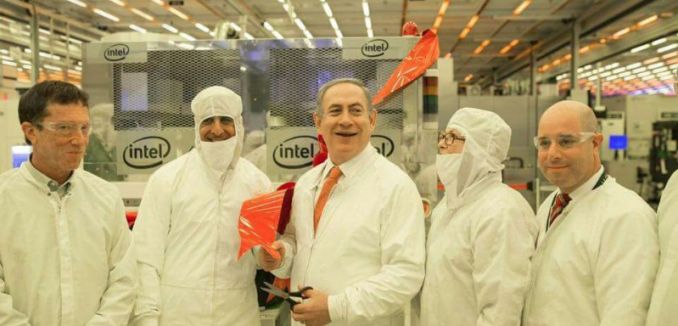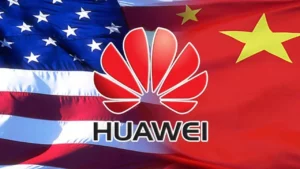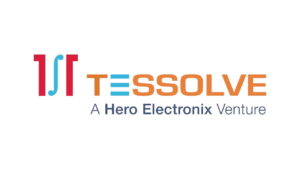Introduction
In the realm of technology and innovation, Israel has emerged as a global powerhouse, particularly in the context of middle east Silicon Valley.
With a rich history of groundbreaking advancements, strategic investments, and a nurturing ecosystem, Israel has managed to establish itself as a key player in the semiconductor industry.
Israel is home to more than 300 research and development centers of multinational corporations, showcasing its global appeal. Israeli tech companies have made significant contributions in fields like cybersecurity, artificial intelligence, and autonomous vehicles, gaining international recognition.
In this blog post, we will delve into the fascinating journey of how Israel has become a hub for cutting-edge technological developments.
Read More: Intel to Invest $25 Billion in Israel; Facility 20 Miles from Gaza Strip
6 Reasons Why Israel is Considered Silicon Valley of Middle east
Israel is often referred to as the “Silicon Valley of the Middle East” for several reasons:
1. Thriving High-Tech Industry:
Israel boasts a highly concentrated and successful high-tech sector, known as “Silicon Wadi,” centered around Tel Aviv and other major cities.
Silicon Wadi, the concentration of high-tech companies around Tel Aviv, is home to over 6,000 start-ups and established tech firms. Multinational tech giants like Google, Microsoft, Intel, IBM, and Apple have major research and development centers in Israel.
2. High Investment and Innovation:
Israel invests heavily in research and development, with the highest R&D expenditure as a percentage of GDP in the world. This fosters a culture of innovation and attracts significant venture capital, helping drive the growth of its tech companies.
Israel leads the world in R&D expenditure as a percentage of GDP, investing over 4.9% of its GDP in research and development. Venture capital investment in Israeli tech companies reached $25.6 billion in 2023, ranking among the highest globally.
3. Highly Educated Workforce:
Israel’s success traces back to its strong emphasis on education and academic excellence. Renowned institutions such as the Technion – Israel Institute of Technology and the Hebrew University of Jerusalem have consistently produced top-tier engineers and researchers, providing the industry with a steady stream of talented minds.
Israel has the highest percentage of adults with tertiary education among OECD countries, with over 50% of its population holding university degrees.
The Technion – Israel Institute of Technology is ranked among the top 100 universities in the world for engineering and technology.
4. Culture of Chutzpah and Risk-Taking:
Israelis are known for their “chutzpah,” a characteristic of boldness and initiative. This, combined with a willingness to take risks and embrace entrepreneurial ventures, contributes to the dynamic and innovative spirit of the Israeli tech scene.
Israeli entrepreneurs are known for their boldness and willingness to take risks, leading to a vibrant start-up scene. The “Start-Up Nation” book highlights this aspect of Israeli culture and its impact on innovation.
5. Government Support:
The Israeli government actively supports the tech sector through various initiatives, including research grants, tax breaks, and investment funding. This creates a favorable environment for tech companies to flourish.
The Israeli government offers various incentives to support the tech sector, including tax breaks, research grants, and investment funds. The Yozma program, launched in the 1990s, played a key role in fostering venture capital investment in Israel.
6. Military Origins: From Defense to Innovation
Israel’s focus on defense technologies has played a significant role in shaping its semiconductor industry. The country’s military needs led to the development of advanced technologies, which were later adapted for commercial use.
This transfer of knowledge from the defense sector to civilian applications has been a driving force behind Israel’s prowess.
Read More: Top 10 Countries with Highest R&D Share of Their GDP
Semiconductor Facilties in Israel
Intel (Kiryat Gat):
- Intel’s facility in Kiryat Gat is known for manufacturing advanced semiconductor products, including microprocessors and other silicon components.
- Intel is a leading global semiconductor company with a broad range of products used in various computing and communication devices.
Tower Semiconductor (Migdal HaEmek, Newport Beach):
- Tower Semiconductor is a global specialty foundry with manufacturing facilities in Migdal HaEmek, Israel, and a presence in Newport Beach, California, USA.
- The company specializes in analog integrated circuits (ICs) and provides foundry services to a diverse range of customers.
Mellanox (acquired by NVIDIA) (Yokneam):
- Mellanox, before its acquisition by NVIDIA, was a leading provider of high-performance networking and interconnect solutions.
- The company focused on technologies such as InfiniBand and Ethernet, offering solutions for data centers and high-performance computing environments.
Read More: How Malaysia became a Superpower in Semiconductor Manufacturing
3 Examples of Companies Making Israel a Silicon Valley
1. Intel’s $10 Billion Investment
In 2021, Intel made a historic announcement, pledging a staggering $10 billion investment to construct a state-of-the-art semiconductor manufacturing plant in Israel. This bold move demonstrates both Intel’s confidence in Israel’s semiconductor capabilities and the country’s attractiveness as a technology hub.
The investment is a testament to Israel’s skilled workforce and thriving ecosystem that make it an ideal location for such a substantial venture.
This plant is poised to play a crucial role in advancing semiconductor technologies for various applications, further establishing Israel’s prominence on the global semiconductor map.
2. IBM’s R&D Center
The year 2022 saw another significant milestone with IBM’s announcement of a new research and development center in Israel dedicated to semiconductor innovation. This center underscores Israel’s reputation as a hotbed for technological advancement.
Focused on pioneering new semiconductor technologies, the center serves as a testament to the country’s ability to attract global giants seeking to tap into its innovation prowess.
IBM’s decision to establish this center is a clear recognition of Israel’s track record in semiconductor research and its potential to shape the future of the industry.
3. Mellanox Technologies: Powering the Data Center Revolution
Mellanox Technologies, an Israeli company specializing in high-performance networking solutions, has become an integral player in the global semiconductor arena.
Acquired by Nvidia in 2019, Mellanox has continued to drive innovation from Israel. Its cutting-edge networking products are vital for data centers, facilitating the seamless flow of data across some of the world’s largest technology companies, including Amazon, Microsoft, and Google.
Mellanox’s success underscores Israel’s ability to develop and deliver semiconductor solutions that are critical to powering modern data-driven technologies.
Read More: Intel to Build First Overseas 3D Chip Packaging Facility in Malaysia
Conclusion
Israel’s journey to becoming a semiconductor powerhouse is a testament to its unwavering commitment to innovation, education, and collaboration.
By leveraging its academic institutions, fostering an entrepreneurial environment, and strategically aligning with global partners, Israel has managed to not only nail semiconductors but also leave an indelible mark on the technology industry as a whole.
As the world continues to rely on semiconductor technology for transformative advancements, Israel’s role in shaping this landscape remains pivotal and inspiring.








